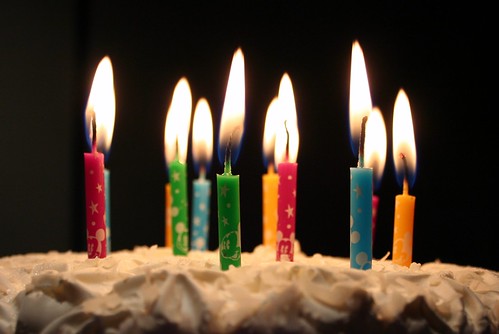What does really “Sto Lat” song is about and how to wish Happy Birthday in Polish Posted by Kasia on Sep 1, 2013 in Culture, Phrases
Birthdays (urodziny) can be a great barometer of cultural difference. Surrounded by tradition and often accompanied by standard etiquette, they can be a potential minefield for a foreigner.
In Poland most people celebrate birthdays however they may not be celebrated with as much enthusiasm as is reserved for “name days” (https://blogs.transparent.com/polish/imieniny/).
Perhaps one of the biggest cultural differences is the idea of “wishes”. In Poland it is common to give quite formal wishes to people and this can be seen on many occasions including Easter and weddings. Basically you reel off a string of things -for example, health, happiness etc – that are actually largely within the person’s own control if anyone’s, but certainly not yours. Whether you know the person particularly well, or genuinely wish any of these things for them, appears to be irrelevant.
So what exactly do you say to your Polish Birthday Girl or Boy?
Well, if you are pretty new at Polish and still finding words with far too few vowels a challenge, stick with “Sto Lat” This literally means 100 years, and is the name of a reasonably famous Polish song that you are bound to hear if you spend any length of time in Poland.
The words of the song are below.
“Sto lat, sto lat, niech żyje żyje nam.
Sto lat, sto lat, niech żyje żyje nam.
Jeszcze raz, jeszcze raz, niech żyje, żyje nam.
Niech żyje nam!”
Hundred years, hundred years, may you live a hundred years.
Hundred years, hundred years, may you live a hundred years.
Hundred years, hundred years, may you live a hundred years.
May you live 100 years!
( I wonder what Poles sing at the celebrations of people older than 100?)
If all this is making you nervous, don’t panic too much. Sto Lat is often accompanied by vodka, which somehow makes the pronunciation easier:)
However, if you are at the level where you can master more than the two word “sto lat” then you can try:
Wszystkiego najlepszego z okazji urodzin – all the best on your birthday
Przeysyłam najserdeczniejsze życzenia z okazji urodzin – I’m sending the warmest wishes on your birthday.
Życzę zdrowia, szczęścia, radości, uśmiechu….. – I wish you health, luck, happiness, smile…..
If you arrive bearing gifts then hand them over accompanied by:
Zrobiłam to dla Ciebie – I made this for you (if you are female).
Zrobiłem to dla Ciebie – I made this for you (if you are male).
To jest prezent z mojego kraju – This is a gift from my country.
Belated birthday:
Przepraszam za spóźnione życzenia urodzinowe – sorry the birthday wishes are late
And if you’re in Poland on your birthday? Well, you definitely need to celebrate Polish-style:
Chciałabym zaprosić Cię na moje urodziny – I would like to invite you to my birthday party (if you are female).
Chciałbym zaprosić Cię na moje urodziny – I would like to invite you to my birthday party. (if you are male.)
Będą osoby na przyjęciu/imprezie które mówią po polsku i angielsku – There will be people at the party who speak both Polish and English.
If you succeed in getting the message through about the party and nothing is lost in translation, then it’s time to say…
Dziękuję za przyjście – thank you for coming,
Dziękuję bardzo za życzenia urodziny -thank you for the birthday wishes.
Do następnego razu… (Till next time…)

Build vocabulary, practice pronunciation, and more with Transparent Language Online. Available anytime, anywhere, on any device.
About the Author: Kasia
My name is Kasia Scontsas. I grew near Lublin, Poland and moved to Warsaw to study International Business. I have passion for languages: any languages! Currently I live in New Hampshire. I enjoy skiing, kayaking, biking and paddle boarding. My husband speaks a little Polish, but our daughters are fluent in it! I wanted to make sure that they can communicate with their Polish relatives in our native language. Teaching them Polish since they were born was the best thing I could have given them! I have been writing about learning Polish language and culture for Transparent Language’s Polish Blog since 2010.





Comments:
Lars:
Czescz Kasia,
Dzekuje dla interesno informacja!
pozdrawiam from Hollandii!
Irene:
@Lars Thank you for this. What does the phrase ‘tie them up’ in Sto lot refer to?
Cheers from Ireland!
Um, no:
The birthday vs. name day thing is regional, not universal.
Beckie Scoh:
that is perfekt
Chrissy:
“Jeszcze raz” means ‘once again’ or ‘one more time’.